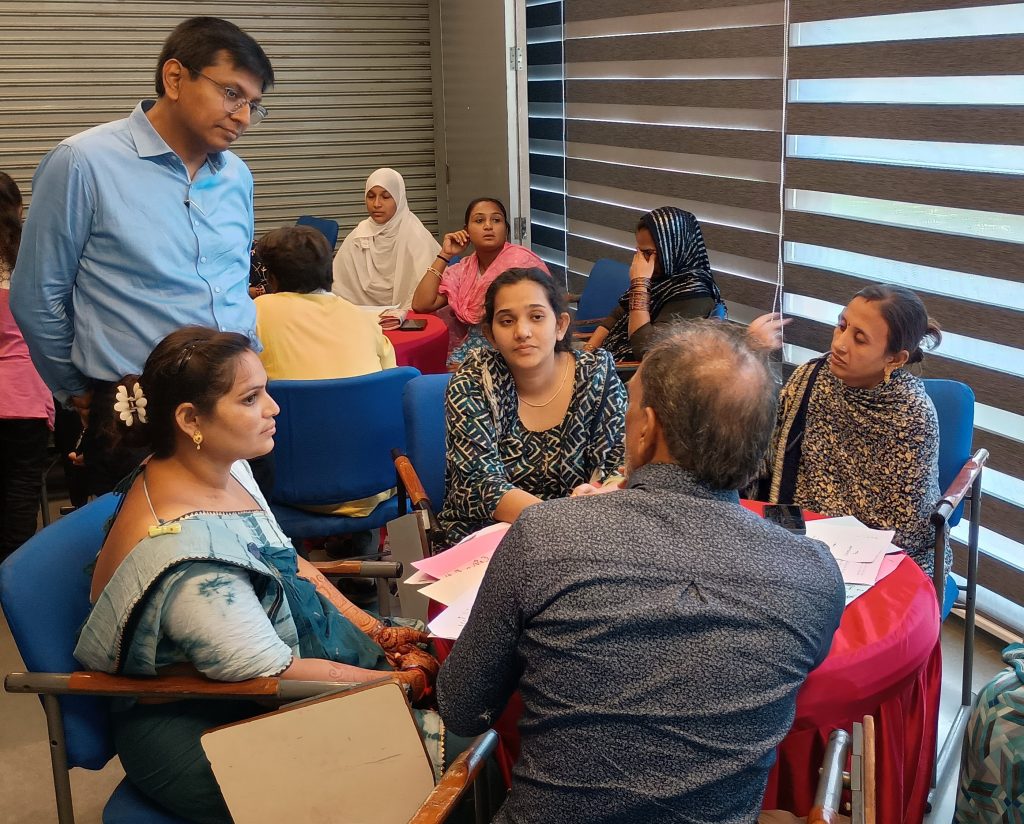From Observing Heat to Cooling Justice

Field consultations have been organised to build an understanding of climate extreme events. These consultations are platforms to learn from communities. Photo: HOISA, Ahmedabad, July 2025.
The Humanitarian Observatory Initiative for South Asia (HOISA) continues to build vital knowledge and collaborative action on one of the region’s fastest-growing humanitarian and climate challenges—extreme heat. Between January and July 2025, HOISA convened five regional roundtables that brought together over 250 humanitarian participants and 26 regional humanitarian experts from across South Asia and beyond.
The below sessions co-developed actionable strategies at the intersection of heatwaves, humanitarian governance, and locally led climate responses.
- South Asia’s Scuffle with Infodemic: Humanitarian Governance in the Age of Misinformation
Explored how misinformation and “infodemics” influence disaster response, especially in the age of social media and information overload. Speakers from India, Bangladesh, and the UK stressed the importance of trust-building and evidence-led communication. As a result, two research projects were developed with the panel members on over-information on the heat of meta-cognition level. - Remedy and Reparation for Climate Harm in South Asia
Focused on legal and community-led approaches to address climate loss and damage. The session proposed regional frameworks for reparation and climate justice. This session built the momentum towards the International Court of Justice’s ruling, a historic vindication for climate justice. Needless to say, the idea of humanitarian justice is not too away.
3. Closing the Early Warning Gap: Extreme Heat
Brought together meteorologists and humanitarian leaders to improve early warning systems, promote anticipatory action, and strengthen community outreach mechanisms. As a result, a flow of activities in the region has come up to make heat-related early warning work at the local level.
4. Humanitarianism in a New World Order
Examined how climate risks like extreme heat are reshaping humanitarian principles. The session discussed shifting global power dynamics, localisation, and inclusive governance. This was presented to a special session with the National Disaster Management Authority (NDMA) of India and the Adventist Development and Relief Agency (ADRA) on Corporate Social Responsibility (CSR) and Disaster Risk Reduction (DRR).
5. Understanding Aid and Decolonisation: A Local View
Reflected on how small businesses, women-led groups, and marginalised communities are driving the conversation on decolonising humanitarian aid in a warming world. A set of action and research agendas has come up, including looking at and in 2040 from the perspective of heat-affected people.
For each of the above sessions, over ten key high-quality reading references were offered on the HOISA website.
HOISA’s work during this period highlighted under-explored issues, including cultural heritage protection during disasters, heat-induced displacement, and adaptation financing for small businesses. These remain central to its growing regional observatory network. HOISA’s observation agenda evolves from past work, led by panel members, and suggestions from the participants.
To collaborate or learn more, visit: www.hoisa.org
